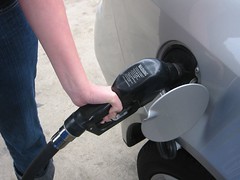OPEC wants oil to reach $70 a barrel – “The price of 50 dollars is not enough to cover investment costs for the future”
ALGIERS (AFP) – OPEC wants to see oil prices rising to more than 70 dollars a barrel, the oil cartel’s secretary general Abdalla El-Badri said Sunday.
“The price of 50 dollars is not enough to cover investment costs for the future,” El-Badri told reporters in Algiers.
“The price which allows reasonable and acceptable revenues is more than 70 dollars a barrel,” he added.
El-Badri was speaking after talks with Energy Minister Chakib Khelilahead of the next meeting of the Organization of Petroleum Exporting Countries in Vienna on May 28.
“There are positive signs of a recovery in the world economy, which we have to take into account before taking a decision on the future,” he added, in response to a question regarding a possible cut in oil production.
“Our forecasts are coherent, those of the IEA (International Energy Agency) are exaggerated,” he added.
On April 15, OPEC lowered its forecast for demand for crude oil in 2009 because the drop in consumption caused by the worldwide recession.
It now says production will drop by 1.6 percent, or 1.37 million barrels a day, down to 84.18 mbd. Its previous report in March forecast a drop of 1.01 million barrels a day to 85.55 mpd.
The IEA, in its latest forecast earlier this month, cut oil consumption by 1.0 million barrels a day for 2009 to 83.4 million barrels, citing the weak global economy as a factor.
TransportGooru Musing: With the entire world moving with heavy investments towards alternative energy such as electric vehicles, OPEC’s “The price of 50 dollars is not enough to cover investment costs for the future” sounds idiotic. OPEC will continue to survive as a group until the developing economies in Asia and Africa figure a way out of oil-dependency.



